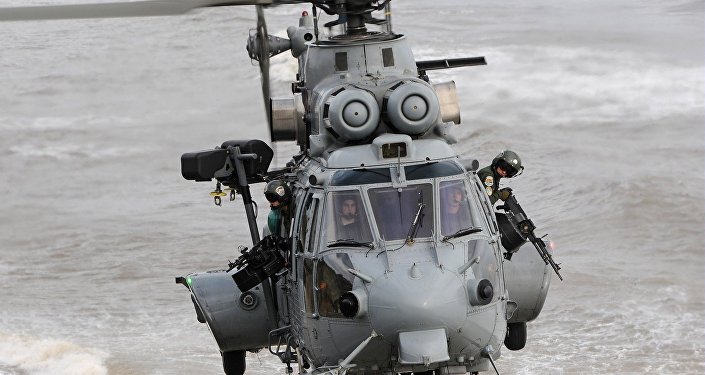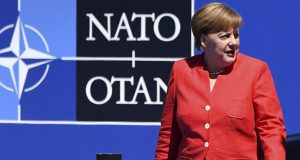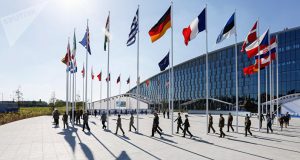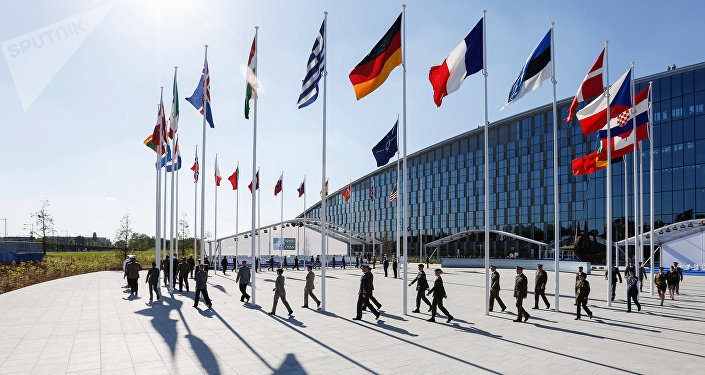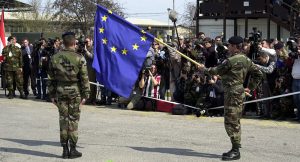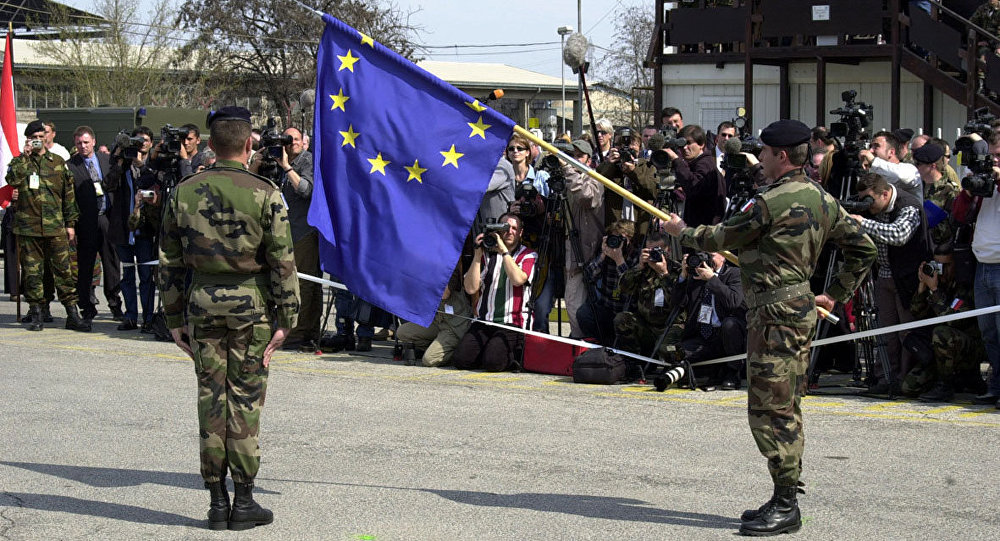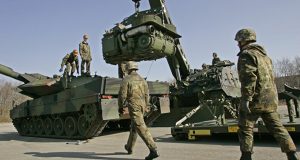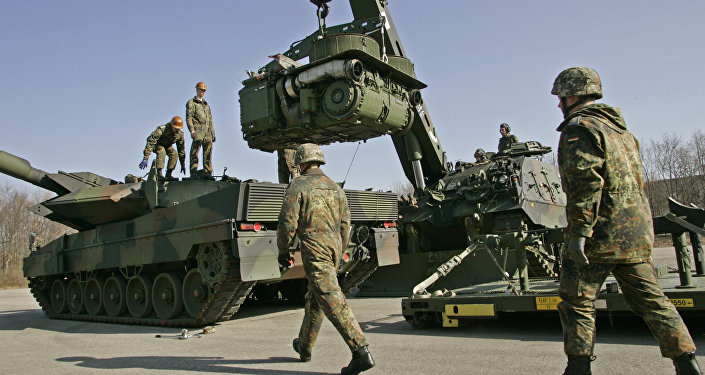Europe’s long-standing dream of having its own integrated military force is gradually taking shape.
Earlier this month, Bloomberg reported that the European Commission issued another document offering scenarios for closer defense cooperation within the bloc.
The paper was signed by two Commission Vice Presidents, Federica Mogherini and Jyrki Katainen.
“The Transatlantic relationship is evolving. […] The onus of improving European security lies first of all in European hands,” the document says.
The authors reaffirmed their support for the ultimate scenario of European military cooperation, including creating an integrated security system, conducting military operations outside NATO, building a European cybersecurity system and establishing a EU border and coast guard.
According to Bloomberg, despite the fact that not all of those proposals have been financed yet, the first steps for their implementation have already been made.
Berlin will definitely face serious obstacles, pushing for an official decision to establish a European joint security force, but the way out seems to have been found. According to Foreign Policy, this is integration of EU members’ militaries into the Bundeswehr.
For example, the German Armed Forces already have command of one Romanian brigade, one Czech brigade and two Dutch brigades.
“The German government is showing that it’s willing to proceed with European military integration,” a professor of international politics at the University of the Bundeswehr in Munich, told the magazine.
An EU army is likely to be a concern for Russia, especially taking into account the “anti-Russian rhetoric of many European politicians,” including German Defense Minister Ursula von der Leyen’s recent remark on talking to Moscow “from a position of strength.”
At the same time, Judy Dempsey from Carnegie Center suggested that an EU army would play into the hands of Russia.
“A European army would instead be welcomed by Russian president Vladimir Putin because the United States wouldn’t have a say in the affairs of such a force,” she wrote for The Washington Post.
She called the plan for a European army “ill-thought and strategically shortsighted.”
“This is not the time to weaken or distract from NATO. Instead it’s time to challenge Trump’s views – and debunk Putin’s hopes – that the NATO alliance has run its course,” Dempsey wrote.
According to Czech military analyst Martin Koller, an integrated security force will not help resolve the challenges Europe is facing, including migration and security.
“Establishing an EU army will not resolve those problems. In fact, it will be the same Bundeswehr with foreign military units under its command. Moreover, such a military force army would mean additional defense spending. Even if the EU establishes its own military force directed against Russia it will not be helpful,” Koller told Sputnik.
According to Russian economist and analyst Ivan Danilov, many American experts are focused on regarding NATO’s future and an EU army through the prism of tensions between the West and Russia.
“American lobbyists insist that NATO is the best instrument to deter Russia while European politicians want an EU army. However, there is an interesting economic and social context behind the façade of European anti-Russian rhetoric,” Danilov wrote in an op-ed for RIA Novosti.
A recent Pew Global survey revealed that a majority of Germans would not want their country to defend a NATO ally if it got into a military conflict with Russia, according to Bloomberg.
Moreover, major European defense companies are expected to benefit the most from an EU army. According to The New York Times, an increase in Europe’s defense spending “could have a positive effect on the sluggish European economy.”
According to Danilov, what is really important in this situation is that the project of an EU army seems to be an attempt to decrease Washington’s influence on Brussels.
“Of course, the US will oppose this plan to the last. It is an open question whether Europe will be able to do that. But taking into account the recent developments in economy, there is a positive signal,” the analyst wrote.
Earlier this week, Germany and Austria criticized the US for a bill introducing new economic and financial sanctions against Russia. The two countries also condemned Washington’s attempts to interfere in the European energy market, in a bid to make the EU buy American-produced liquefied natural gas.
“If the EU shows the same resolution in its attempts to withdraw from US and NATO military influence Washington may face the risk of losing its geopolitical positions in Europe. A geopolitical divorce between the US and the EU would take long, but as a result both Washington and Brussels will be less focused on their anti-Russian policy,” Danilov suggested.


